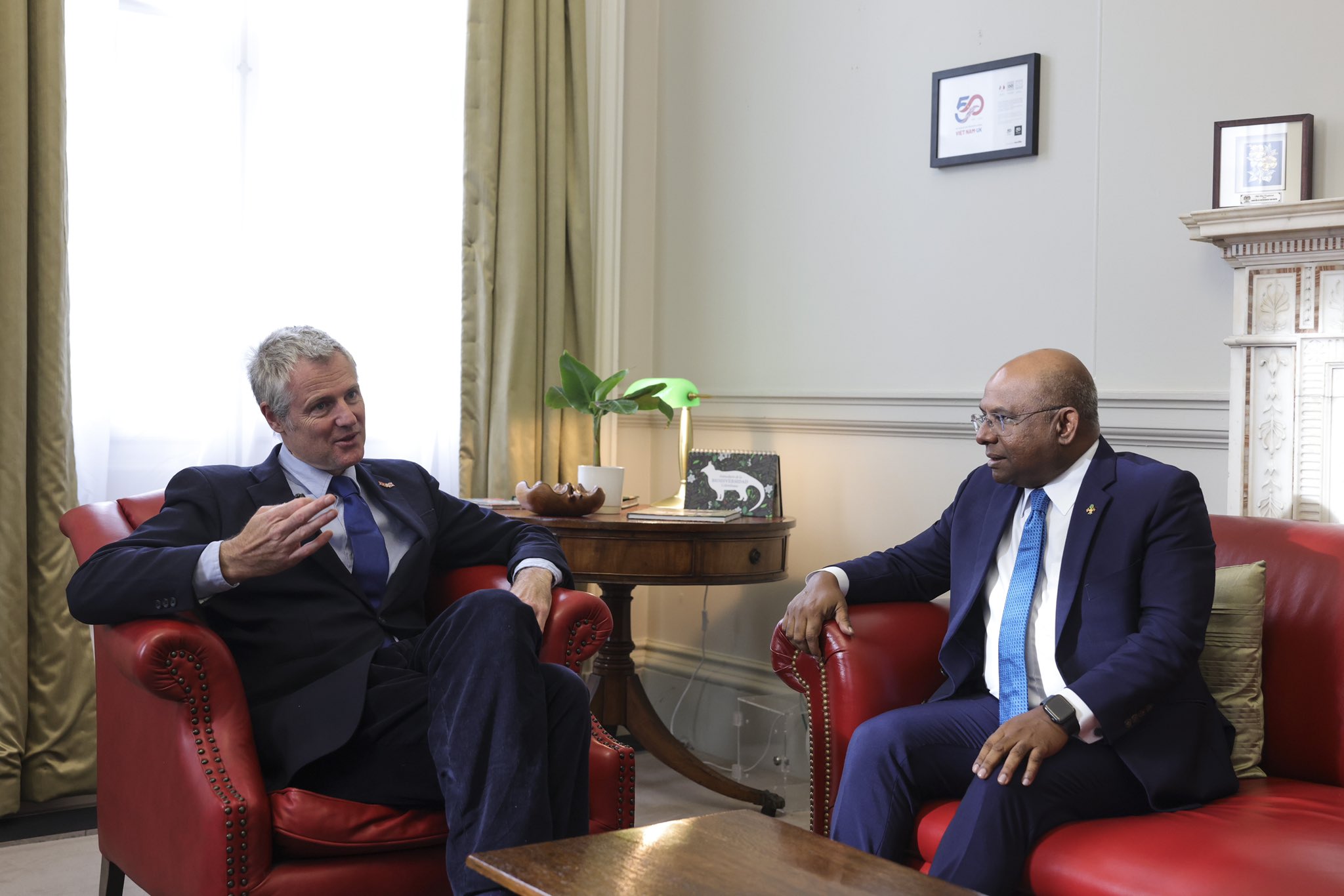Malé, Maldives – Minister of Foreign Affairs of the Maldives, Abdulla Shahid concludes the Official Visit to United Kingdom today.
According to the ministry, the purpose of the visit was to engage with the new leadership of the Government of the United Kingdom to reaffirm the commitment of the Maldives to foster the existing close relationship, and discuss and explore additional areas for cooperation.
During the visit, Minister Shahid met with the Secretary of State for Foreign, Commonwealth and Development Affairs of the UK, Rt. James Cleverly. The Ministers reviewed the existing bilateral portfolio between the two countries and explored avenues to further enhance cooperation especially on obtaining duty free access to the UK, for fish and fish products from the Maldives.
Minister Shahid also met senior officials of the Government including the Minister of State for the Middle East, South Asia and the United Nations at the Foreign, Commonwealth & Development Office and the Prime Minister’s Special Representative for Preventing Sexual Violence in Conflict, Lord Tariq Ahmad of Wimbledon, Minister for Asia, Energy, Climate and Environment, The Rt. Lord Goldsmith.
He also met with Minister for Development at the Foreign Commonwealth and Development Office, The Rt. Andrew Mitchell, MP, Deputy Chairman of the Commonwealth Enterprise and Investment Council (CWEIC), Sir Hugo Swire, co-chairs of the Maldives All Party Parliamentary Group (APPS) Lord Bilimoria and Yasmin Qureshi MP, and several other members of the British parliament.
Minister Shahid also addressed the youth at the Oxford Union Society on the future of multilateralism.
During his address at the Oxford Union, Minister Shahid stated that at a time when the effectiveness of the multilateral system is called into question, we cannot forget that no country, no matter how powerful, can survive unilaterally.
He reiterated that we cannot forgo multilateralism as it is the only system that gives everyone an equal voice, that lets problems and solutions be contextualized, is inclusive of all communities and the only system under which we can preserve an increasingly fragile and precious global peace.
He also called to endeavor to build a United Nations 2.0 as envisioned in the Secretary General’s Our Common Agenda – a United Nations that is more inclusive and responsive to the needs of communities; one whose General Assembly commands more moral authority; and one whose Security Council is more inclusive where veto privileges are not abused.





